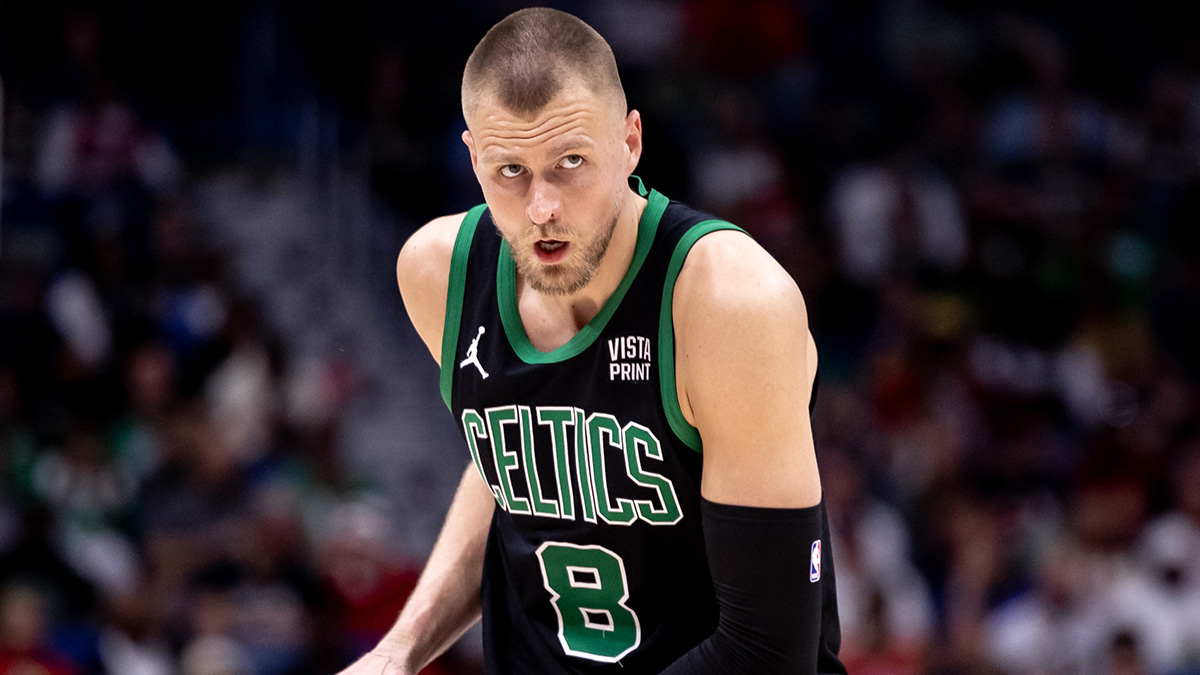A lot has been made, and will continue to be made, about Kyrie Irving’s vague response to questions about his long-term future with the Celtics. The star point guard said, “Contractually, financially, [an extension] just doesn't make any sense,” when asked about potentially signing an extension with the Celtics this summer (Irving would make approximately $80 million more if he opted out of his contract and re-signed with the Celtics next summer).
A lot has also been made, and will continue to be made, about Irving’s vague response to questions about his opinion on the shape of the Earth. The 26-year-old was vexingly ambiguous on the topic in an interview with the New York Times' Sopan Deb last week.
- A. SHERROD BLAKELY - Here's why the Celtics believe Kyrie will stay
Not enough has been made about the connection between the two topics: Kyrie’s feelings about his future with the Celtics and his skepticism about the shape of the planet.
Alex Moshakis recently wrote about a Flat Earther conference for the Guardian and made a few observations about the type of people in attendance that reminded me of Kyrie.
A distrust of the establishment, or “them,” is necessary for anyone who doubts the scientific consensus we’ve held for thousands of years. Now, I don’t know Irving (although I did say hello to him at Media Day last fall) but I could see why he might have trust issues. The Cavaliers signed him to a max extension in the summer of 2014, releasing a statement in which they called him “firmly at the core of our Cavaliers team and family for years to come." just days later they signed LeBron James.
- MORE KYRIE - Irving talks about his "Uncle Drew" movie
Fast forward to the summer of 2016, when word reportedly gets to Kyrie that the team has had internal talks about what they might receive in return for him in a trade. Irving hit the arguably the biggest shot in NBA history in Game 7 of the 2015 NBA Finals, helping the Cavaliers overcome a 3-1 deficit against the 73-win Golden State Warriors...and they’re thinking of trading him?
That’s when the next common trait of Flat Earthers comes into play. Moshakis notes that many of the people he spoke to at the conference were in search of control over their life. They don’t want to just swallow what scientist tell them because it’s what everyone else does, they want to decide for themselves, and that a rejection of the establishment is a “bid to reclaim personal agency.” Irving’s request for a trade was a way to regain control of his career … just like unrestricted free agency will be next summer.
Harry Dyer, a lecturer at the University of East Anglia was also at the Flat Earth conference. His write up on Live Science focused on the attendees' skepticism “of existing power structures and their tight grasps on knowledge.” Irving’s appearance on ESPN’s First Take last fall was a clear example of his refusal to accept social norms. He doesn’t care whether he was “supposed” to want to stay with LeBron James, the best player on the planet. He wanted to leave and didn’t care what NBA society thought about it. It’s honestly refreshing.
That’s why reading into Kyrie’s comments, one way or the other, about his future with the Celtics are just conjecture. Conventional wisdom says he should want to stay in Boston, where he will make the most money, play for a prestigious franchise with an elite coach surrounded by young players with star potential. But conventional wisdom means nothing to Kyrie. He’s told us that with his words and actions. Kyrie has earned the right to control his career, and that’s exactly what he will do next summer. Let’s hope he decides this city is the best place on Earth, whatever shape it may be, for him to grow in.


